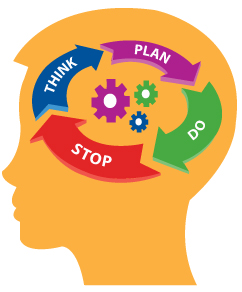This is the VOA Special English Education Report.
Executive function. What do you suppose that is? Mental health professionals, educators and others use this term when talking about ways that people exercise self-control. Executive function involves the skills we need to organize our lives.
Experts at the National Center for Learning Disabilities say we use executive function to study situations, plan, act and change our minds. They say problems with executive function are strongly linked to attention deficits and learning disabilities.
All of these problems can have some of the same signs — for example, trouble with working memory.
What is working memory? This term is commonly used now in place of short-term memory. It describes the brain’s ability to store recent information temporarily, but also to use and make sense of it.
Researchers say good executive function is important for success in school.
Students with poor executive function need help to organize research. They have serious trouble deciding which of two or three tasks to do first. They have difficulty changing tasks or working on one project for a long period of time.
A person might have trouble waiting and cooperating, and might say or do things even if it offends others.
Laura Berk in the psychology department at Illinois State University is an expert on the subject. She says executive function skills can be improved.
For example, Professor Berk says games of Simon Says can help young children learn to exercise self-control by NOT doing something. Children are given directions but told to follow them only when the leader begins a direction by saying “Simon says … “
She also suggests a game called Freeze. Children dance to music until the music stops. Then they have to place their bodies in a position shown in a picture.
She says giving children a chance to use their imaginations for make-believe play can also help them develop executive function skills.
Teenagers and adults can write lists and establish ways to make sure they do important tasks. Technology can help. For example, online banking services can be set up to pay bills automatically. And alarm clocks on cell phones can remind someone when it is time to go to work or be in class.
And that’s the VOA Special English Education Report, written by Nancy Steinbach. This was part seven in our series on learning disabilities. The series is online at WWW.VOA-STORY.COM. I’m Steve Ember.
